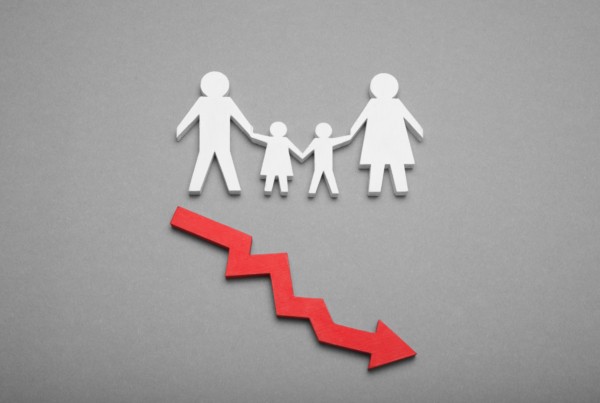Infertility is a condition that affects about 1 in 10 couples worldwide and nearly 27.5 million couples in India—a number that seems too large to be true, simply because it is not talked about freely. Misconceptions about infertility run deep—from people close to the individual to society at large, people widely hold opinions about infertility even though these fallacies are scientifically unfounded. Infertility is a taboo subject due to low levels of awareness about what is a complex condition with varied causes.
But these myths and value judgements that make infertility more challenging for couples need to be questioned:
It is not a curse or punishment from God: Procreation is closely tied to religious, cultural and social norms and customs. Several studies have explored the impact of religion and religiosity on fertility and childbearing patterns. Therefore, the converse—not bearing children—does not fit with the normative social order—enter adulthood, get married, raise children. The same religious and social motivations and conditioning insinuate that infertility is something unwanted, a curse, punishment or cause for shame ordained by a higher power or fate.
While faith and social order have their place, one must view infertility with the same medical seriousness as other illnesses are accorded. The World Health Organization defines infertility as a disease of the reproductive system. And there are specific biological causes behind it and lifestyle reasons that can exacerbate it.
Nothing is “wrong” with her: Already a problem that is difficult to come to terms with, infertility gets cloaked in awkwardness, whispers, rumours, and reluctance, thus making it even harder to address. Like with any other illness, it is crucial to dissociate value judgements or assumptions from the sufferer, but instead, look at the situation as a medical condition with causes, symptoms and treatments.
Moreover, infertility is a problem for a couple, not an individual. It has been reported that 40% of infertility cases globally were related to men, 40% to women and 20% were attributed to both sexes. Yet, it is usually viewed as a woman’s problem.
Whether it is a low sperm count, low sperm motility, or abnormal sperm, male infertility is characterized by diverse conditions and can result from a variety of causes. For several couples, the treatment options for infertility end up being interminable and without result as they focus solely on the woman. Recognizing that the male could be infertile can go a long way in reducing treatment durations, ensuring more relevant options, and lessening the trauma and stress endured due to infertility.
Women have been found to be more open about discussing their fertility problem and have a more positive outlook on treatment than men. However, it is crucial that men and women prioritize the reproductive health of men in equal measure and build an understanding of the causes and symptoms of male infertility. Knowledge can enable more men to get the medical help they need, at the right time. Importantly, this will empower couples to get the support that can make a difference in their lives.
She is not a bad wife: Both male and female partners have an equal role to play in reproduction, but the responsibility of child-bearing is typically placed squarely on the woman. Especially in predominantly patriarchal societies, being childless is a cause of immense stigma on a woman. The wife’s purported “failure” to bear a child is viewed as a challenge to the husband’s manhood. WHO research has pointed out that the “social burden” of infertility “falls disproportionately on women.” There are communities where it is acceptable for a man to divorce his wife if she has not had a child or to bring home a second wife.
Moreover, such a perspective absolves the male partner of his role in conception. As a result, awareness of male infertility tends to stay poor because it is not even acknowledged as a contributing factor. This is an obstacle for men in getting the right information on their reproductive health and on factors that could have an impact their fertility. Males who doubt their fertility and would like to seek help may be deterred by social pressure to keep up the reputation of his manliness. Until a society acknowledges the husband’s part in this journey, there are likely to be serious gaps in reproductive health trends.
Let’s erase these taboos
There are countless infertile couples out there. In fact, you might know one too. It is important to remember that infertility is not a taboo word.
It is time to look beyond the empty lap and understand, with empathy and awareness, the causes and reality of infertility. What an infertile couple needs most is support and reassurance, a safe space where they can choose to discuss it and seek help without feeling judged or stigmatized. Infertile couples are not childless by choice. Moreover, they need the support of their family and social circle to deal with it, not their unkindness.
Today, medical advancements in assessing reproductive health and offering alternative solutions for conception can change the infertility journey of couples into one of hope, one that culminates in a happy family with healthy children. But it is of no use if a couple suspecting infertility is hesitant to seek help due to social taboos. For a couple to feel confident in seeking solutions and deal with infertility head-on, they must not feel like their personal identity and social relationships are compromised by infertility. Taking the taboo and stigma out of infertility would truly transform the infertility journey of couples. It would give couples the strength to take action to address infertility and move forward.







